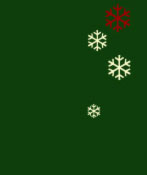|
Staffing
A minimum of three knowledgeable adult birders are needed, one of whom is registered BSA Bird Study merit badge
counselor. All should be willing to work with teenage Scouts, enthusiastic and knowledgeable in basic birding.
While other birders can instruct, the actual signature on the Scout's merit badge application card must be by an approved
BSA Bird Study Merit Badge Counselor. Counselors must be registered and approved by their local BSA district or council.
Therefore, a BSA MB counselor must be identified and present during the one-day event to sign the Scout's merit badge cards.
One way to do this is to ask your local council for the names of local Bird Study merit badge counselors. Another
is to post a message in your local Audubon newsletter to ask them to identify themselves. Both methods should be used.
Becoming a Bird Study Merit Badge Counselor
More Bird Study Merit Badge Counselors are always needed. The duties aren't much more than
running this event once a year. Birders wishing to register as counselors should contact their local BSA Council office.
Info on it can be found at www.scouting.org.
Individuals who wish to serve as merit badge counselors should submit the BSA Merit Badge Counselor
Information form (No. 34405) and an adult leadership application (No. 28-501) to the local council service center. (Both forms
can be downloaded at www.scouting.org/forms.)
Merit badge counselors must be at least 18 years old, proficient in the merit badge subject by vocation
or avocation, able to work with Scout-age youth, and registered with BSA.
Counselors must agree to follow the requirements of the merit badge, making no deletions or additions,
ensuring that the advancement standards are fair and uniform for all Scouts; have a Scout and his buddy present at all instructional
sessions; and renew their registration annually to continue as a merit badge counselor.
Facilities
The best location for the class is a nature center that has a classroom and adjacent birding habitat. A feeder visible
from the classroom will give the Scouts a good start in identifying twenty species. It also allows them to
begin taking notes indoors where it's easier. Finally, it ensures they'll record some species that day even if the weather
precludes the walk.
A field trip to different habitat the next week will give the boys who don't get to twenty birds
the first day a chance to finish the badge quickly. This second bird walk can be a regular one of your club, nature center,
or Audubon Society.
Administration
A flyer advertising the course should be distributed about three months in advance. Scouts pre-register a month in advance
and are given the list of forty birds to become familiar with in their field guides. If they see any birds before the
class, they should record them in their notebook as described in requirement five and illustrated on page 56 of the 2013 edition
of the Bird Study MB pamphlet. They should also read the Bird Study merit badge pamphlet (the 2013 printing) before the first
class.
Student Workbook
It's optional, but a student workbook for Bird Study Merit Badge for each student makes it easier for your
students to complete the badge. Here's a link to the Adobe PDF document.
Bird Study Student Notebook in Adobe PDF
Finances
Little expense is incurred in offering the course.
To encourage participation, the course should normally be
offered without charge to the Scouts. The Scouts will normally have to buy a field guide and the pamphlet for the course,
so they've already sunk a bit of money into the experience. If a small registration fee is used to ensure attendance, consider
refunding it, crediting it towards dues in your organization or issuing birding related gift certificates to those Scouts
who complete the badge.
Logistics and Checklists
|




